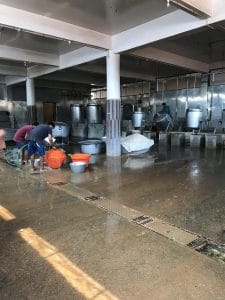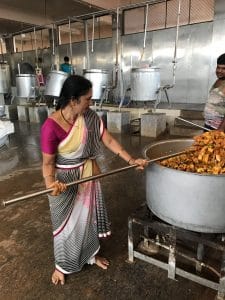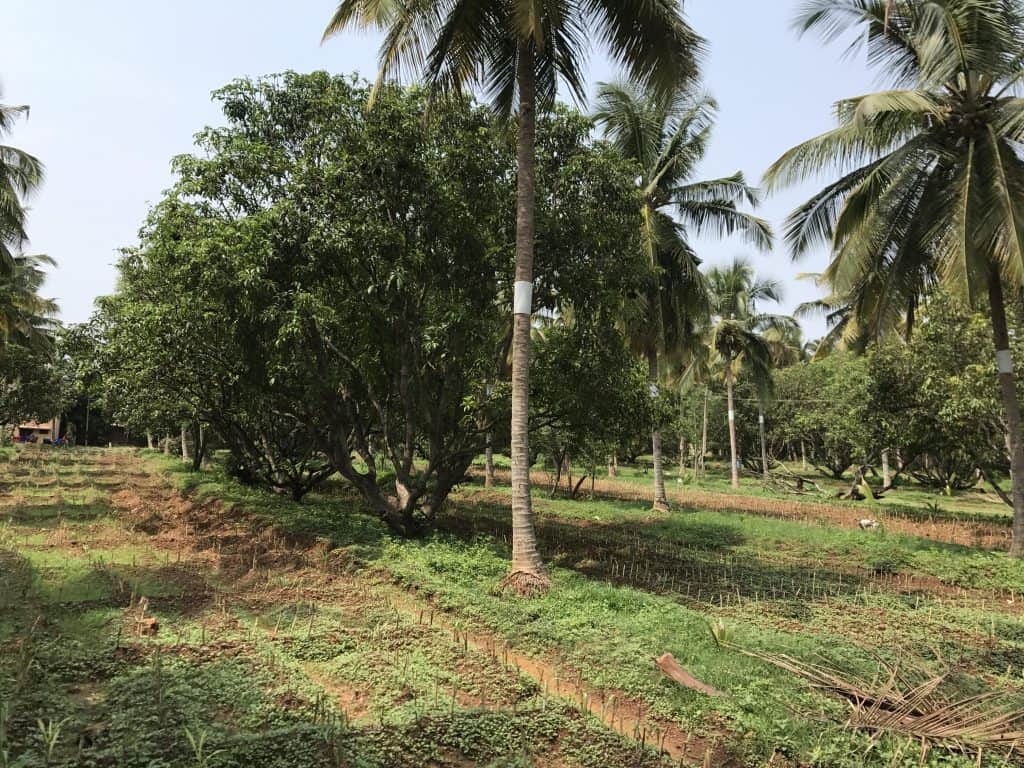Those familiar with the social structure in the North Karnataka region will tell you, religious mathas in North Karnataka hold a very powerful place. Epicentres of power and faith, they make an appearance on the list of must- visit places for devotees and politicians alike, albeit for different reasons. One of the defining features for many of them are the community kitchens they run, where thousands of people eat everyday. Largely run on donations from devotees, these kitchens could, however, pose a serious challenge for those in the business of waste management.
But even as management of kitchen waste from pocket-sized apartments in our cities is becoming a cause of concern in waste management, a Matha and its community kitchen in Hubli has been ably demonstrating how it can be done effectively.
Learning from the past
The Siddharoodha Matha in Hubli, considered among the holiest shrines of the Advaita philosophy, is one of the city’s main attractions. Dedicated to the patron saint Siddharoodha (considered to an incarnation of Shiva), who is said to have attained his final samadhi here, it has had famous visitors since it was established in late 1878, including Lokmanya Tilak and M K Gandhi.
The matha prides itself on being a casteless centre of faith whose devotees includes people from all walks of life. “For example, we have a gaushala with 29 cattle and require fodder to be cut for them. That business is dominated by the Muslim community, who have rendered that service free for the matha for years now” says Sathish Hiremath, one of the volunteers.
This Matha’s community kitchen feeds almost 6,000 people everyday. (That is not the largest in the city, however. That distinction belongs to ISKCON’s Akshaya Patra, which serves almost 1 lakh lunches everyday, making it the largest in the country). But it certainly is among the oldest community kitchens in the city which began waste management even before it became a catch phrase.

This kitchen has been an example in waste management — since long before waste management itself became a catchphrase. Pic: Manasi Paresh Kumar
“Systems established and practised in earlier times have proven to be quite effective and sufficient to ensure that the environment is well-cared for. The grey water that came from our bathrooms were directed to the gardens at the back of many of our homes, and we kept our waste at the minimum. They were simple solutions which were effective for those times. These techniques are being adapted to work for present times, with new names. What is now called a compost pit was previously called ‘Thippe Gundi,‘ which is what we still use” said D D Malagi, the chairman of the trust that is in charge of the matha, as he took us around.
Kitchen waste and farm management
The head cook of the kitchen is Sheela Godbole, a wiry petite lady, who is dwarfed by the huge cookers that she stands next to, stirring up her pot of magic. “Every day we cook about 2 quintals of rice, 50 kilos of dal and about a quintal of vegetables. We have ten boys who help in the kitchen with heavy lifting. But I oversee all of the cooking,” she says.
The system is simple and structured from the time that the kitchen opens at 7 am. Once the vegetables, pulses and other essentials have been picked from the APMC market, where the wholesale dealers who deal in every kind of edible donate to the community kitchen, work begins on war footing. Chopping, boiling, grinding etc needs to be done quickly to feed the first of the devotees who begin to line up from 8 am. Breakfast is usually some kind of mixed rice which is served till 12 pm. However by 10 am, preparations are under way for lunch. The menu has a sweet dish jowar husk, rice and curry, and one vegetable. The fare ends with butter milk. The menu for dinner is similar, but excludes the sweet dish.
The waste generated by all three meals is transported daily to the farm abetting the matha at the back, and subsequently segregated. “Because we have cattle, we segregate the vegetable and green waste so that the good stuff can be fed to them. We need a lot of milk for our kitchen and have to ensure that our cattle are taken good care of. Kitchen waste is nutritious and a perfect solution to this. They are also fed fresh fodder that is grown in our fields,” explained Malagi. An estimated 50 kilos of waste is generated everyday from the kitchen, though they were quick to add that they hadn’t really kept a count of it. A majority of it is fed to the cattle.
Whatever cannot be fed to the cattle is then put into compost pits or as they call it, thippe gundi, that have been dug in the farm. There are two of these pits in this farm behind the matha. “These pits are quite deep going up to 8 to 10 feet. We use the layer system – the first layer is the kitchen waste, which is then followed by diluted cow dung. We then layer it with debris from the farm and once the pit is thus filled, we use the next one.” explained Malagi.
The pits themselves are cleared once in six months after the compost is generated. “According to our estimate, about 10 to 12 tractor-loads of compost are generated for each of these pits. This compost is then transported to the other farm lands owned by the matha around the area. Quite honestly, we fall short of compost for our lands,” says Malagi.
The only waste that the matha would let out in the drains was the ganji generated while cooking rice. “But now we have learnt that Akshaya Patra adds it to their sambar, making it more nutritious and tasty. We are looking at how to work the same into our kitchens. Once that is done, we will proudly be able to say that no waste from our kitchen goes out to the municipality,” says Malagi.
Scaling impact
The matha also plans to expand its learnings to the community at large. Even as Hubli-Dharwad grapples with the challenges of being included in the list of smart cities, waste management being one of the main areas of focus, Malagi says their future plans include teaching people how to manage their waste.
The twin cities, which largely depend on pigs as waste clearing agents, are already facing health issues that were further aggravated recently, with the NIPAH virus that spreads because of the pigs. Locals say the mafia involved in this quite powerful, as most of the animals are transported to Goa to meet that state’s demand for pork.
“We are planning yoga workshops in the matha, where we are looking to teach people on how to manage their own waste. Never mind the Nipah virus and other health hazards, it just makes sense to not dirty your surroundings. That is what we should learn from our forefathers,” says Malagi.

